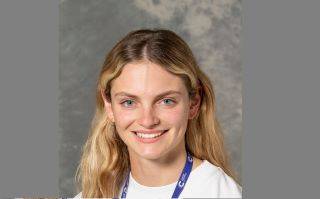The Proteomics Research Translational Technology Platform (TTP) offers collaborative proteomics research support for projects at the Cancer Institute and within the CRUK City of London Centre.
The Proteomics Research TTP provides infrastructure for the identification and quantification of proteins and their post-translational modifications (PTMs). This includes expertise in PTM enrichment strategies, peptide separations, state-of-the-art mass spectrometry (MS) for discovery-driven experiments as well as targeted workflows for sensitive and consistent quantitative monitoring of pre-selected sets of proteins. The pathform continuously develops and adapts new sample preparation techniques, MS approaches and software tools to provide optimal analytical solutions for individual research projects. The PRTTP should be involved in all stages of a project to facilitate the use of an appropriate experimental design leading to accurate data interpretation.
Proteomic research at the Cancer Institute is led by Silvia Surinova - Team Lead in Proteomics, supported by Amandeep Bhamra - Mass Spectrometry and Proteomics Specialist and overseen by a scientific committee
How do I start a proteomic collaboration?
In order to establish a proteomic collaboration, you will need to submit a project proposal. Please request a proposal form by email (s.surinova@ucl.ac.uk). Proposal requests are reviewed by the scientific committee and successful proposals will be further discussed between proteomic experts and researchers. Typically, details of experimental conditions, analytical strategies, tailored data analysis and expected results interpretation will be determined prior to collaboration starting.
Equipment
- Q-Exactive Plus coupled to EASY nLC 1200
Thermo Fisher Scientific
Liquid Chromatography Mass Spectrometry (LC-MS) used for discovery- and hypothesis-driven peptide-level workflows
- Ultimate 3000 BioRS UHPLC
Thermo Fisher Scientific
Offline LC optimised for high pH Reversed Phase peptide fractionation
- ScanVac vacuum centrifuge and freezer dryer
Speedvac capable of drying down protein/peptide solutions to dryness in both Eppendorf tube and Falcon tube formats. For booking, please refer to the attached documentation.
- Orbitrap Exploris 480 coupled to EASYnLC 1200
Experimentation
- Protein extraction and proteolytic digestion
Generation of digests from whole proteomes or protein complexes
- Enrichment of post-translational modifications
Generation of enriched sub-proteomes (phosphorylated, ubiquitinated, ...)
- Peptide separation
Fractionation of peptidic mixtures to achieve deep sequencing
- Isotopic labelling of peptides
Employed for sample multiplexing and downstream fractionation
Data Analysis
- Database searching
To identify proteins and their modifications (Proteome Discover, MaxQuant)
- Quantification
To determine protein abundance (MaxQuant, Skyline) in a label-based (e.g. TMT labelling) or label-free manner
- Statistics and bioinformatics
Significance analysis of abundance changes (MSstats, Perseus)
Functional bioinformatics
Would you like to work with us?
The Proteomics Team also includes PhD and MSc students and visiting post-doctoral researchers. If you would like to work with us and have your own funding, do get in touch by email with a brief letter of motivation.
List of publications
CRUK CoL Centre Proteomic Seminar Series
Our seminars showcase the latest proteomic developments and research highlights from global leaders in the field.
- Previous seminars
Statistical methods and tools for quantitative proteomic and imaging mass spectrometry investigations
Prof Olga Vitek, Khoury College of Computer Sciences, Northeastern University
Monday, 10th June 2024, 2pm
Recording available online
Passcode: %85X$EYZThe orchestration of subcellular processes through RNA and protein interactions
Prof. Kathryn Lilley, University of Cambridge
Wednesday 10th of January 2024, 12pm
Recording available onlineExploring cell heterogeneity in health and disease using single-cell proteomics and transcriptomics
Prof. Erwin Schoof, Technical University of Denmark
Wednesday 4th of October 2023, 12pm
Recording available online
Passcode:xT9M#2r&Phosphoproteomics: Illuminating Signalling Networks Associated with Cancer Drugs and Temporal Kinase Activation
Dr Yansheng Liu, Department of Pharmacology, Yale University School of Medicine
Monday 19th of June 2023, 2pm
Recording available online
Passcode: ?t8myL=6Light-mediated discovery of surfaceome nanoscale organization and inter-cellular receptor interaction networks.
Prof Bernd Wollscheid, Institute of Translational Medicine, ETH Zurich, Switzerland
Wednesday 23rd of March 2022, 12:00-13:00
Recording available hereProximity interactomes: using a reference map of a human cell to navigate cancer signaling and viral infections
Prof Anne-Claude Gingras, Lunenfeld-Tanenbaum Research Institute of Sinai Health System, Toronto
Thursday 16th of September 2021, 13:00-14:00
Recording available hereUsing Network Bioinformatics to Reveal Disease Pathways and Therapies from Proteomic and Genetic Data: Applications to SARS-CoV-2
Dr Mehdi Bouhaddou, University of California, San Francisco
Monday 14th of June 2021, 15:00-16:00
Recording available here
Passcode: 59ES+qt=Proteomics beyond protein expression analysis: Proteomes in 3D
Prof Paola Picotti, Institute of Molecular Systems Biology, ETH Zurich, Switzerland
Monday 26th of April 2021, 12:00-13:00
Recording available here
Passcode: Cpd^*u6w
 Close
Close







